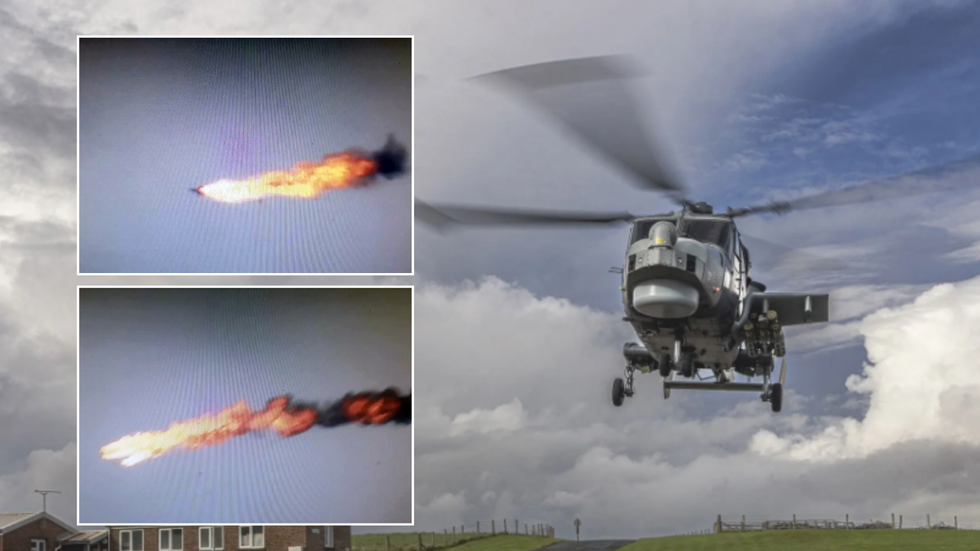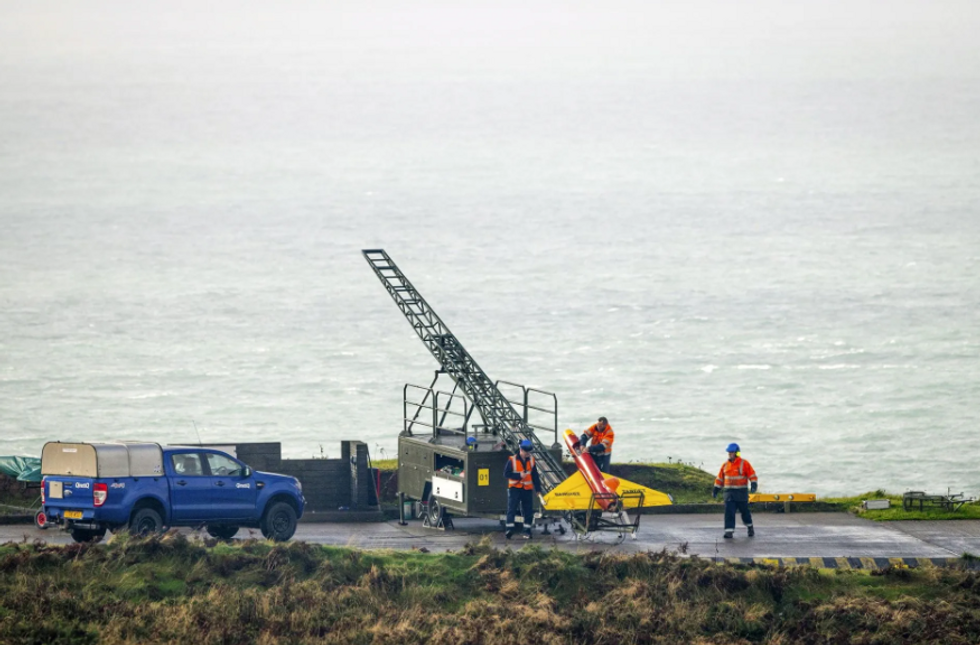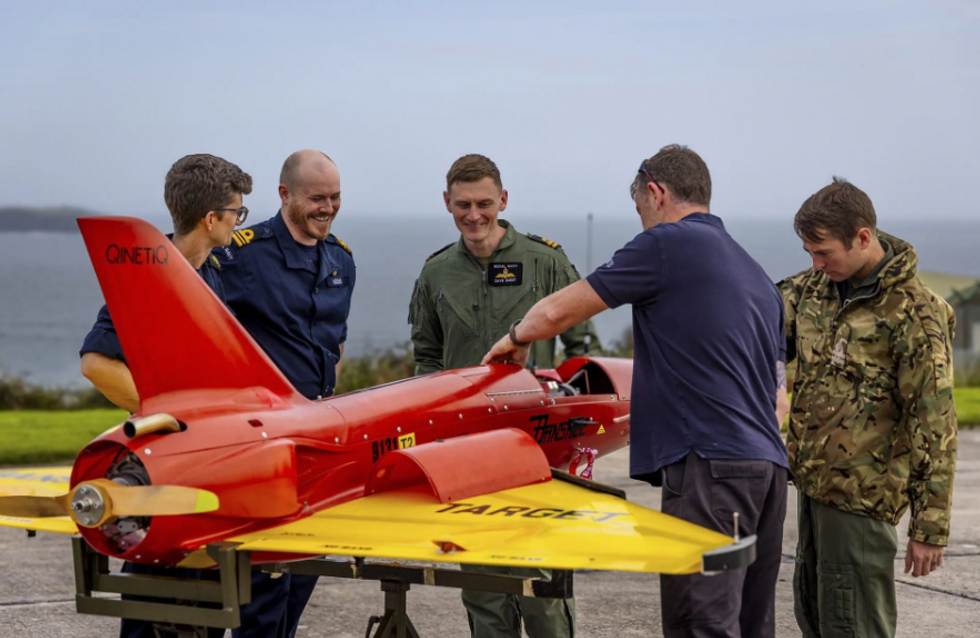Holly Bishop
Guest Reporter
The Royal Navy has shared behind the scenes footage of a helicopter missile shooting down a drone in a first-of-its-kind test.
The force fired a Martlet missile from a Wildcat combat helicopter to take down a Banshee drone over the Bristol Channel.
The drone, which was flying at hundreds of miles an hour, was shot down without any assistance.
It marks a huge “step forward” in the Royal Navy’s ability to defend itself from drones, which the force described as a “very modern threat”.

The trial recently took place at RAF Manorbier in South Wales over a two-day period.
The Martlet missile is a lightweight, laser-guided missile which has been in service since 2021.
It was “designed to foil enemy fast attack craft/speedboats”, though experts have noted its capability in the air also.
Commander James Woods, commanding officer of 815 Naval Air Squadron, said: “This is a fantastic development for the Wildcat HMA 2 helicopter and a significant advancement in maritime strike capability for the Royal Navy that further refines our ability to deter and neutralise airborne threats.”
MORE LIKE THIS:


During the trial, the drone was launched via a ramp with the helicopter poised to intercept.
Pilots manning the Wildcat then fired the new missile to take the drone down in mid-air.
Speaking after the test, Wildcat pilot Lieutenant Dave Guest said: “It’s really important that we can demonstrate the Wildcat’s effectiveness in engaging targets such as uncrewed systems -and that we can do so on our own, without requiring the assistance of other assets.
“Martlet is a highly-capable – and also cost-effective – weapon in our arsenal, ideal for this, while Banshee is representative of the challenges we face globally, particularly in the Red Sea.”

The trial was conducted after the Ministry of Defence (MoD) placed a £176million order for lightweight missiles from Belfast weapons factory Thales UK in July.
The MoD said the missile would provide a solution against threats such as drones, helicopters, other aircraft and small, fast maritime targets.
Find Out More...
The force fired a Martlet missile from a Wildcat combat helicopter to take down a Banshee drone over the Bristol Channel.
The drone, which was flying at hundreds of miles an hour, was shot down without any assistance.
It marks a huge “step forward” in the Royal Navy’s ability to defend itself from drones, which the force described as a “very modern threat”.

The trial recently took place at RAF Manorbier in South Wales over a two-day period.
The Martlet missile is a lightweight, laser-guided missile which has been in service since 2021.
It was “designed to foil enemy fast attack craft/speedboats”, though experts have noted its capability in the air also.
Commander James Woods, commanding officer of 815 Naval Air Squadron, said: “This is a fantastic development for the Wildcat HMA 2 helicopter and a significant advancement in maritime strike capability for the Royal Navy that further refines our ability to deter and neutralise airborne threats.”
MORE LIKE THIS:
- Nigel Farage pays heartfelt tribute to Walton war hero’s ‘epic Victoria Cross story’
- British Army reservist, 55, becomes oldest person to complete Nato's toughest patrol
- Army captain 'drunkenly punched and swore' at senior officer 'who tried to stop him being run over'


During the trial, the drone was launched via a ramp with the helicopter poised to intercept.
Pilots manning the Wildcat then fired the new missile to take the drone down in mid-air.
Speaking after the test, Wildcat pilot Lieutenant Dave Guest said: “It’s really important that we can demonstrate the Wildcat’s effectiveness in engaging targets such as uncrewed systems -and that we can do so on our own, without requiring the assistance of other assets.
“Martlet is a highly-capable – and also cost-effective – weapon in our arsenal, ideal for this, while Banshee is representative of the challenges we face globally, particularly in the Red Sea.”

The trial was conducted after the Ministry of Defence (MoD) placed a £176million order for lightweight missiles from Belfast weapons factory Thales UK in July.
The MoD said the missile would provide a solution against threats such as drones, helicopters, other aircraft and small, fast maritime targets.
Find Out More...
